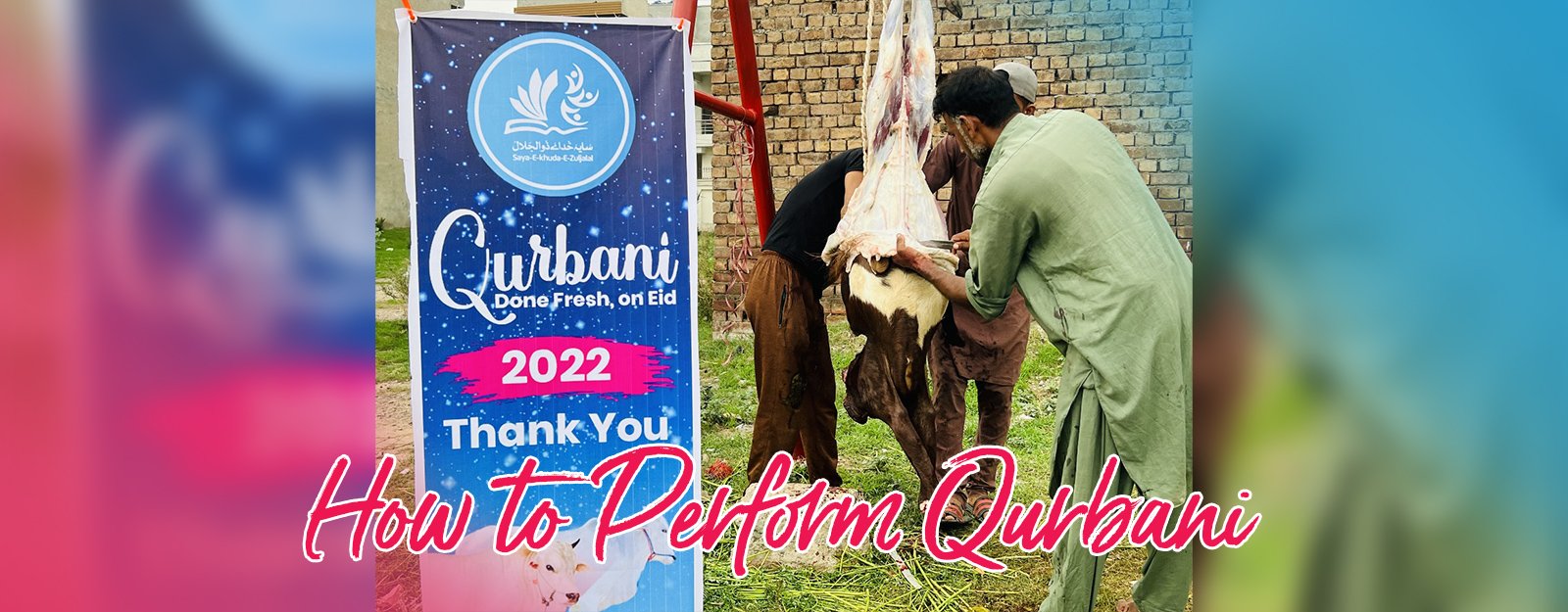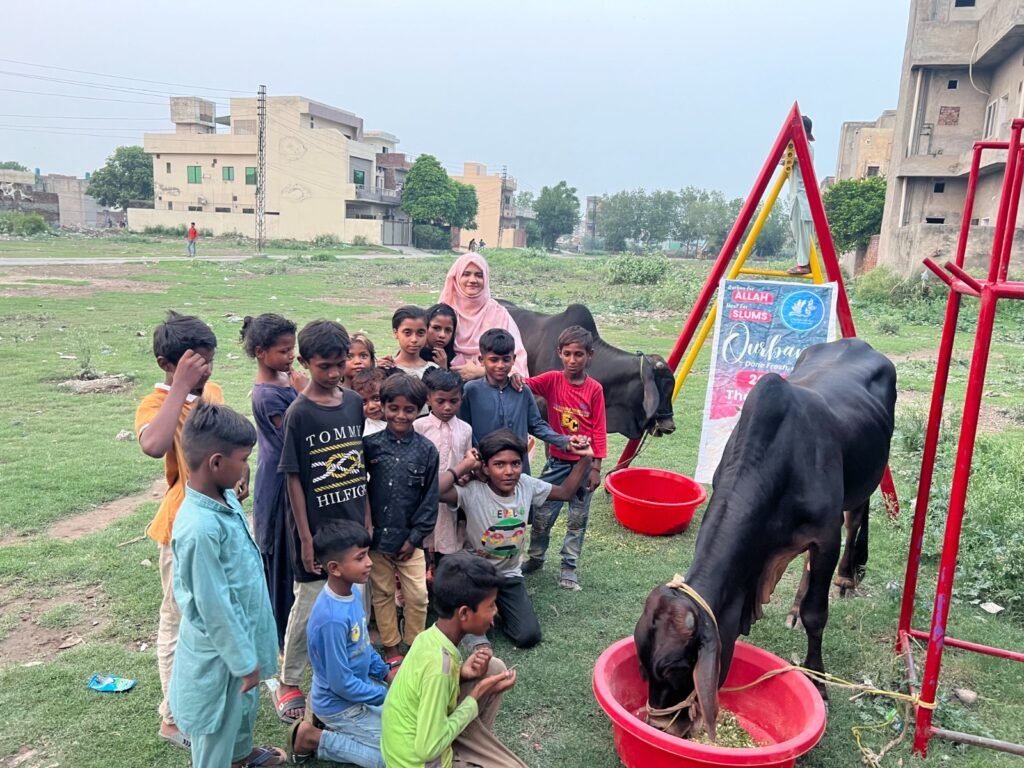
Qurbani or sacrifice holds immerse significance in Islam. Every year billions of Muslims all over the world partake in this tradition by slaughtering an animal in the name of Allah SWT. There are some Qurbani rules which we must follow for the slaughter of animal to be counted as Qurbani.
It is an obligation for every Muslim who is of age and has wealth in excess to give Qurbani in the way of Allah.
The basic concept is that anyone who is eligible of giving Zakat is also eligible for giving Qurbani.
Every Muslim who has reached puberty and is sane
A person who is not travelling
A person who owns wealth beyond his needs equal to or greater than the current level of Nisaab for Zakat (87.4-gram gold, 612.3-gram silver)
In accordance with Islamic principles of compassion and mercy towards animals:

It is essential to divide the Qurbani meat in three equal parts:
Every adult member of the family who has wealth in excess should donate a minimum of one Qurbani each. One Qurbani is equivalent to one sheep/goat/lamb or one portion out of seven portions in big animal like cow/camel/buffalo.
When distributing the meat of Qurbani certain things should be kept in mind so that the most deserving can receive it. Following people can receive the Qurbani meat:

It is highly recommended that those intending to offer Qurbani refrain from cutting their hair or nails from the first day of Dhul-Hijjah until after the completion of the sacrifice. This practice signifies a period of heightened spiritual devotion and preparation for the act of worship, developing a deeper connection to the significance of the sacrifice in the eyes of Allah.
The Prophet (saw) said:
“When the ten days (of Dhul-Hijjah) start, and one of you intends to sacrifice, then let him not cut his hair or his nails”. (Muslim)
Every year, SKZ Foundation carries out Qurbani sacrifices for the sake of Allah, through the generous donations of kind-hearted people. With unwavering dedication, we ensure that this sacred act of Qurbani reaches the hearts and homes of those most in need. Then we distribute the meat fairly among the residents of slum communities. This act of kindness brings comfort and nourishment to those facing challenges, reflecting our commitment to compassion and generosity.
We believe that only education and skill development can empower youth, shaping their futures and substantiating the deprived community.
BANK DETAILS
Bank Name: Bank Islami
Account Title: Saya E Khuda E Zuljalal
Account Number: 2053-5712157-0001
IBAN NUMBER: PK60BKIP0205357121570001
Bank Name: Cashplus Bank
Account Title: Saya E Khuda E Zuljlal
Account Number: 07845728
Sort Code: 08-71-99

© SKZ Foundation TM 2017. Privacy Statement , Terms & Conditions Registered Charity No: 1200520. Head Office: 4 hollis lock, Chelmsford CM2 6RR UK. Disclaimer: SKZ Foundation is not affiliated with any external websites. SKZ Foundation is not responsible for the content of external internet sites and any links from external web sites to this site do not constitute an endorsement of that site by SKZ Foundation.
Copyright @ 2024 Single Solution. All Rights Reserved.